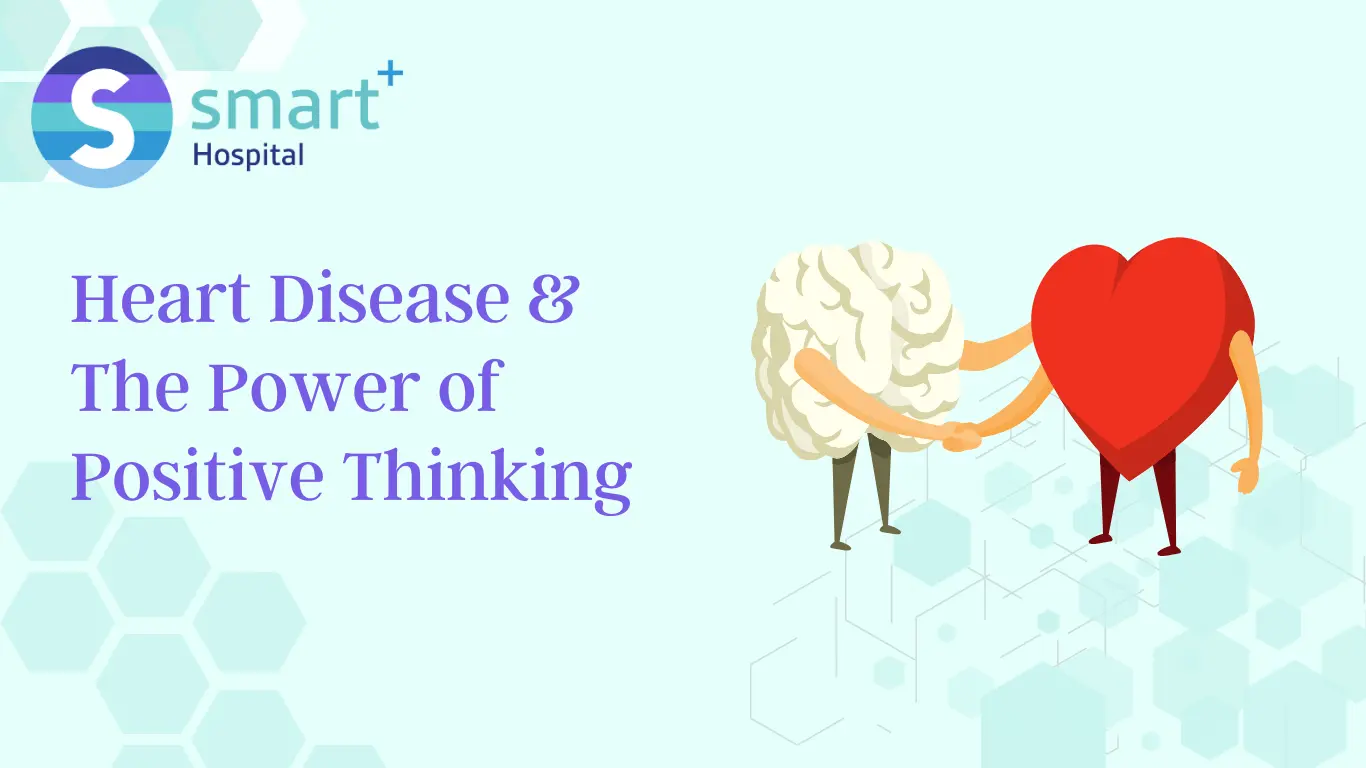You must have heard “mind over matter,” But how often do we apply that concept when it comes to our health, especially heart health? Can our thoughts influence our physical well-being?
Keep reading to know the power of positive thinking and its potential effect on heart disease might surprise you.
What is Heart Disease?
Heart disease remains one of the leading causes of death worldwide. Everyone must be aware of its risk factors and prevention strategies, encompassing a range of conditions affecting the heart and blood vessels.
The spectrum of heart-related disorders can be life-threatening, from coronary artery disease to heart rhythm issues, if not addressed promptly.
The Science Behind Positive Thinking
Positive thinking has roots deep within our neurology. Neurotransmitters, chemicals that convey messages between nerve cells, play a significant role.
When we maintain a positive outlook, the brain releases neurotransmitters like serotonin and dopamine, which have numerous health benefits, including for our heart.
How Thoughts Influence Our Cardiovascular Health
The mind and heart are intrinsically linked. Chronic stress or persistent negative thoughts can lead to the release of the hormone cortisol.
Elevated cortisol levels are associated with high blood pressure, a significant risk factor for heart disease.
In contrast, positive emotions can reduce cortisol production, supporting heart health.
Reducing Stress with Positive Thoughts
Stress is the nemesis of heart health. But here’s the good news: every positive thought acts as a shield, deflecting the arrows of stress and anxiety.
Combine Medical Care with Positivity
While positive thinking has benefits, it should complement, not replace, medications meant to cure heart disease.
Regular check-ups, medication adherence, lifestyle changes, and a positive attitude offer the best strategy to fight against heart disease.
Heart Disease Prevention
Regular Screening: Early detection is crucial. Regular health check-ups can help catch potential issues before they become severe.
Lifestyle Choices: Eat a balanced diet, exercise regularly, and avoid smoking.
Embrace Positivity: Alongside medical interventions, nurture a positive mindset to support heart health.
Tips to Foster Positive Thinking
Journaling: Reflect on good moments.
Meditation: Centre your mind.
Affirmations: Empower your day with positive statements.
Embrace Optimism for Better Heart Health
Imagine your heart is a battery. Every optimistic thought is a charge, boosting its efficiency and resilience. The more you charge, the longer and healthier it runs.
The Limitations of Positive Thinking
Positive thinking is powerful, but it’s not a miracle cure. It should complement other heart-healthy habits, not replace them.
Positive Thinking and Lifestyle Choices
The way we think influences our choices. A positive mindset can encourage better dietary choices, more physical activity, and less alcohol or tobacco use.
Top cardiologists agree that a holistic approach, including mental well-being, is crucial in cardiovascular health.
Conclusion
Our heart doesn’t just beat; it listens. It listens to our thoughts, our worries, and our joys. So, let’s fill it with hope, positivity, and optimism because a happy heart is always healthy.
FAQs
Q: Does positive thinking cure heart disease?
A: Yes! A lot of evidence suggests that having a positive outlook — like being optimistic, cheerful, and having gratitude in life protects your heart.
Q: How often should I screen for heart disease?
A: Consult a cardiologist, but annual check-ups are generally recommended for those with known risk factors.
Q: Are there any tools to help cultivate a positive mindset?
A: Mindfulness apps, positive affirmation cards, and gratitude journals can be beneficial tools.
Q: How does stress directly impact the heart?
A: Chronic stress leads to elevated cortisol levels, resulting in high blood pressure—a significant risk factor for heart disease.
Q: Is adopting a positive mindset after a heart disease diagnosis too late?
A: It’s never too late! A positive mindset can aid in recovery and improve overall well-being.





Pingback: The Importance of Regular Checkups for a Healthy Heart: A Complete Guide - Smart Hospital